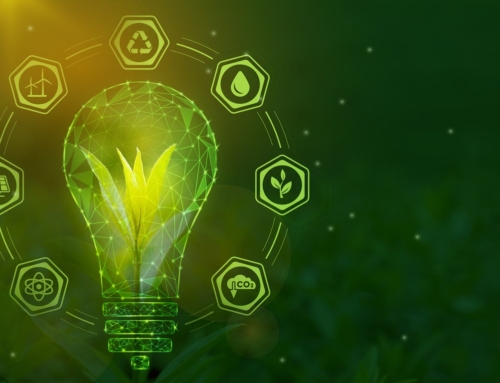Effects of Fossil Fuels on Human Health
Fossil fuels supply about 80% of the world’s energy. They provide us with electricity, gas, and transportation. Even though these are vital components of our lives, fossil fuels emit carbon dioxide and greenhouse gases that contribute to global warming and climate change.
Not to mention, these toxic chemicals are released into the atmosphere and consequently affect the air that we inhale every single moment of each day. Though we may not be able to completely stop using fossil fuels today, we can take steps to incorporate green energy efforts for a healthy and sustainable future. Read on for our guide on the human and environmental impacts of fossil fuels.
What Are Fossil Fuels?
Fossil fuels are a group of energy sources from combustible geologic deposits of organic materials, or decayed plants and animals. They are burned to create energy and come in various forms such as oil, coal, and natural gas.
Effects of Fossil Fuels on the Environment
The effects of fossil fuels on the environment are a cause for concern. Though globally we have made progress in developing more environmentally-friendly energy sources, there is still plenty of work to be done. As mentioned above, fossil fuels come in various forms that affect our environment in harmful ways.
Global Warming
The most serious consequence of fossil fuels have on our planet is global warming. In 2017, U.S. greenhouse gas emissions consisted of 82% of carbon dioxide. Carbon dioxide traps heat in our atmosphere, which contributes to climate change.
In addition, transportation was the highest source of greenhouse gas emissions in 2017. This comes from our vehicles such as cars, ships, and planes. Over 90% of the fuel used for transportation is petroleum-based.
Air Pollution
Burning fossil fuels produces a copious amount of air pollutants that harm environmental health. In addition to carbon dioxide, this creates toxic chemicals such as:
- Mercury – This comes primarily from coal-fired power plants. Not only does it pollute our air, but when it settles on the ground, it infects bodies of water that harm the food chain.
- Sulfur Dioxide (SO2) – This contributes to the formation of acid rain, sulfate aerosols, and particulate matter.
- Particulate Matter (PM) – Particulate matter, or soot, is a mixture of small particles and liquid droplets that create haze.
Water
Fossil fuel and power plants have been found to withdraw tons of water. In 2008, water-cooled thermoelectric power plants in the U.S. withdrew an average of 60 billion to 170 billion gallons of freshwater from rivers, lakes, streams, and aquifers each day. The nation’s largest coal fleet alone was responsible for 67% of those withdrawals and 65% of that consumption. As a result, watersheds have been increasingly experiencing water-supply stress.
Effects of Fossil Fuels on Human Health
All the impacts of fossil fuels mentioned above affect the air and water, which directly impacts our health.
When we inhale, the toxic matter from fossil fuels puncture our lower airways and may even enter our bloodstream. This contributes to asthma, pneumonia, chronic obstructive pulmonary disease (COPD), heart disease, and stroke among many Americans. For example, in 2011, air pollution from coal plants contributed to up to 10,300 deaths and 65,000 asthma attacks, among other issues.
Moreover, there are various production methods that have demonstrated the direct effects of fossil fuels on human health. For example, hydraulic fracturing—or fracking—is the process of extracting oil or natural gas from formations by blasting water mixed with chemicals. This creates a toxic zone of air pollution that can cause headaches, asthma symptoms, birth defects, and heart problems.
Looking Ahead to a Safer, Eco-Friendly Future
We can use renewable forms of energy such as solar, wind, and tidal power to create a healthier and safer world for ourselves and our loved ones. These sources carry fewer negative impacts, harnessing the power of nature at competitive prices. Be sure to educate yourself on the human and environmental impacts of fossil fuels to take the proper steps to carve a new path for safer and eco-friendly alternatives.
Contact Us
Help create a sustainable energy future by contacting Kiwi Energy today. As an energy retailer dedicated to reducing carbon footprints, we can help you incorporate eco-friendly practices and tools into your daily lives. Our efficient customer service team will be here to answer all of your questions.






